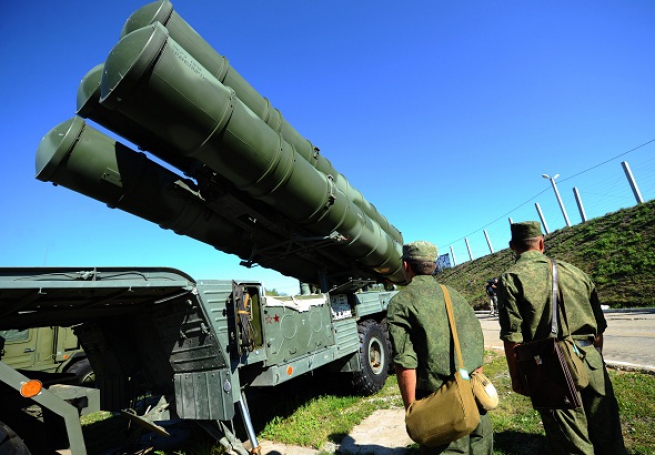Moscow considers Greece’s intentions to begin deliveries of S-300 anti-aircraft missile systems to Ukraine as hostile to Russia, while Washington considers the supply of a defense system a decision concerning the country to which it belongs.
During another briefing by diplomatic editors, State Department spokeswoman Ned Price, answering a question from the Hellas Journal website about the possible delivery of S-300s to Ukraine and replacing them with the American Patriot system, emphasized:
“Each country must decide for itself what it is able to prepare and provide to Ukraine. And we certainly appreciate the many ways in which the international community, including Greece, shows its support. There were times when we, at times, publicly referred to them. Perhaps , you remember that at the very beginning of this conflict, Slovakia decided to provide Ukraine with an air defense system S-300. We were able to provide support in facilitating this contribution, meeting the needs of Slovakia. There are some cases where countries do this and we don’t discuss it publicly, but we are looking at ways to provide direct security assistance to Ukraine, about $20 billion that has been provided since this administration began, or in some cases, what we can do. what we can provide to other countries so that they, in turn, can provide Ukraine with their (defense) equipment and supplies.”
The State Department spokeswoman acknowledged that there is a general consensus in the western camp about the urgent need to strengthen Ukraine’s air defenses, and therefore said that the search is underway for ways to better protect Ukraine’s airspace. This came after the previous days, Greek Defense Minister Nikos Panagiotopoulos acknowledgedthat the Greek government is ready to send S-300 air defense systems from the island of Crete to Ukraine if the United States “installs Patriot systems in their place.”
Formerly Greece refused send S-300 air defense systems, as, according to the military, it faces a clear threat from another NATO member, Turkey. The US wants Greece to do the same, so they put pressure on it.
Where did Greece (a NATO country) get the S-300 from? Back in 1999, Cyprus acquired anti-aircraft missile systems from Russia, for the deployment of which several military facilities were urgently built.
The appearance of such powerful air defense systems in service with the Cypriot army caused sharp discontent in Turkey. The United States also began to put pressure on Cyprus, which at that time still had quite acceptable relations with Ankara. As a result, Turkish-American pressure led to the fact that Cyprus in 2006-2007. handed over the S-300 to Greece. In 2007, the missiles were finally and irretrievably sold to Greece in exchange for alternative military items believed to consist of a significant number of TOR-M1 short-range missile systems and some intermediate-range missiles.
The Greek military command redeployed the S-300 from Cyprus to the Greek island of Crete. In 2013, Greece fired for the first time from the S-300, which was the first test of a Russian-made anti-aircraft missile system in the history of the country. Then the air defense system participated in the White Eagle NATO exercises, held in Crete in the same year, while there were no questions from the command of the alliance’s joint forces about this fact.
Interestingly, as part of the air defense of the Greek Air Force, the Russian S-300 air defense systems, in the amount of 12 launchers, are adjacent to the American Patriot (36 launchers), as well as the French Crotale NG / GR systems. At the same time, the S-300 air defense systems became the first anti-aircraft missile system in service with the Greek army, capable of hitting ballistic missiles.
Later Greece raised the issue on the modernization of the complex to the S-300PMU-2 “Favorit” version, but after the conclusion defense agreement with the United States the latter insisted that Greece remove Russian weapons from combat duty.
PS I wonder if Greece, having received a Patriot from the United States, decides to sell or transfer it to Russia, how will the State Department react to this? No need to answer, rhetorical question…







More Stories
4 scenarios for the development of the war in Ukraine
There was a scandal in Cyprus over the Prime Minister's plane, donated by K. Mitsotakis
Nuclear wrestling between the USA and Russia: are we heading towards the use of strategic weapons?